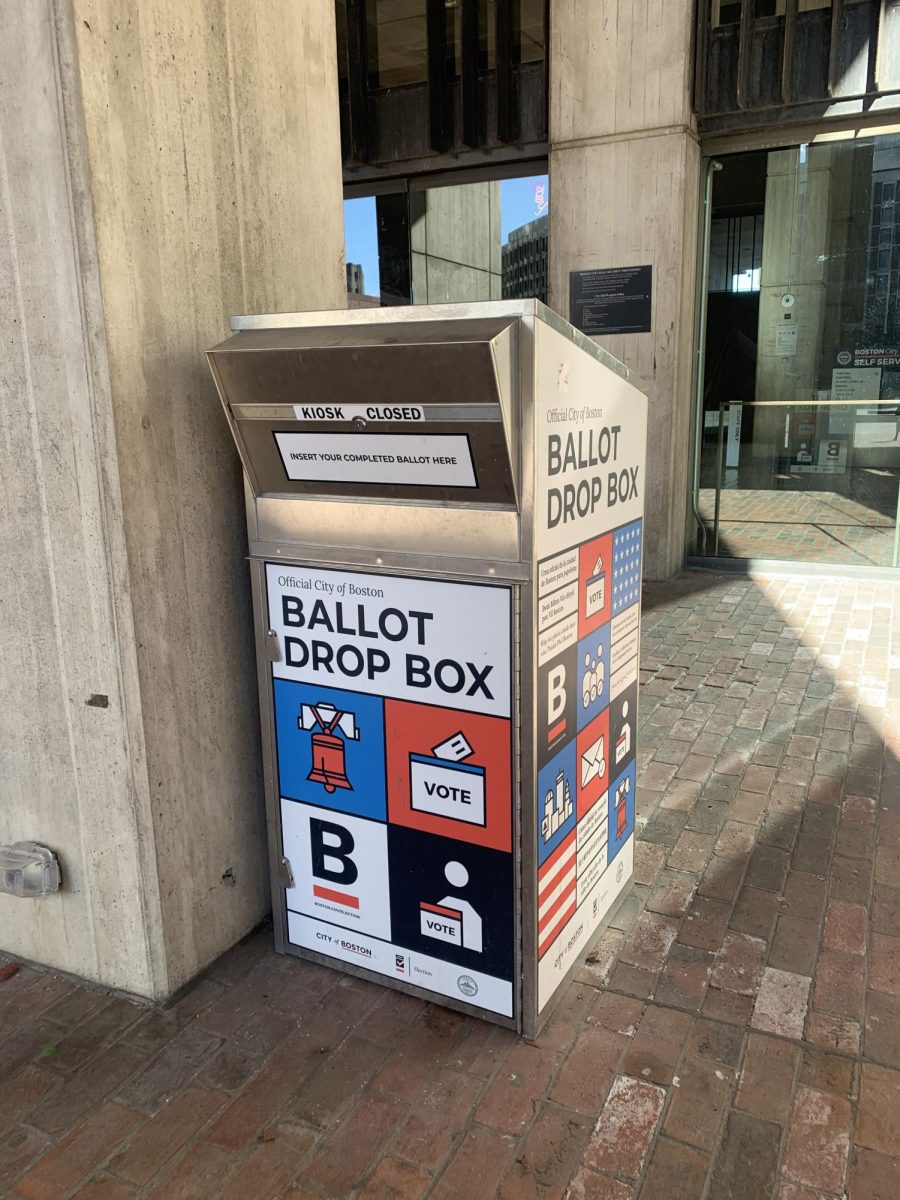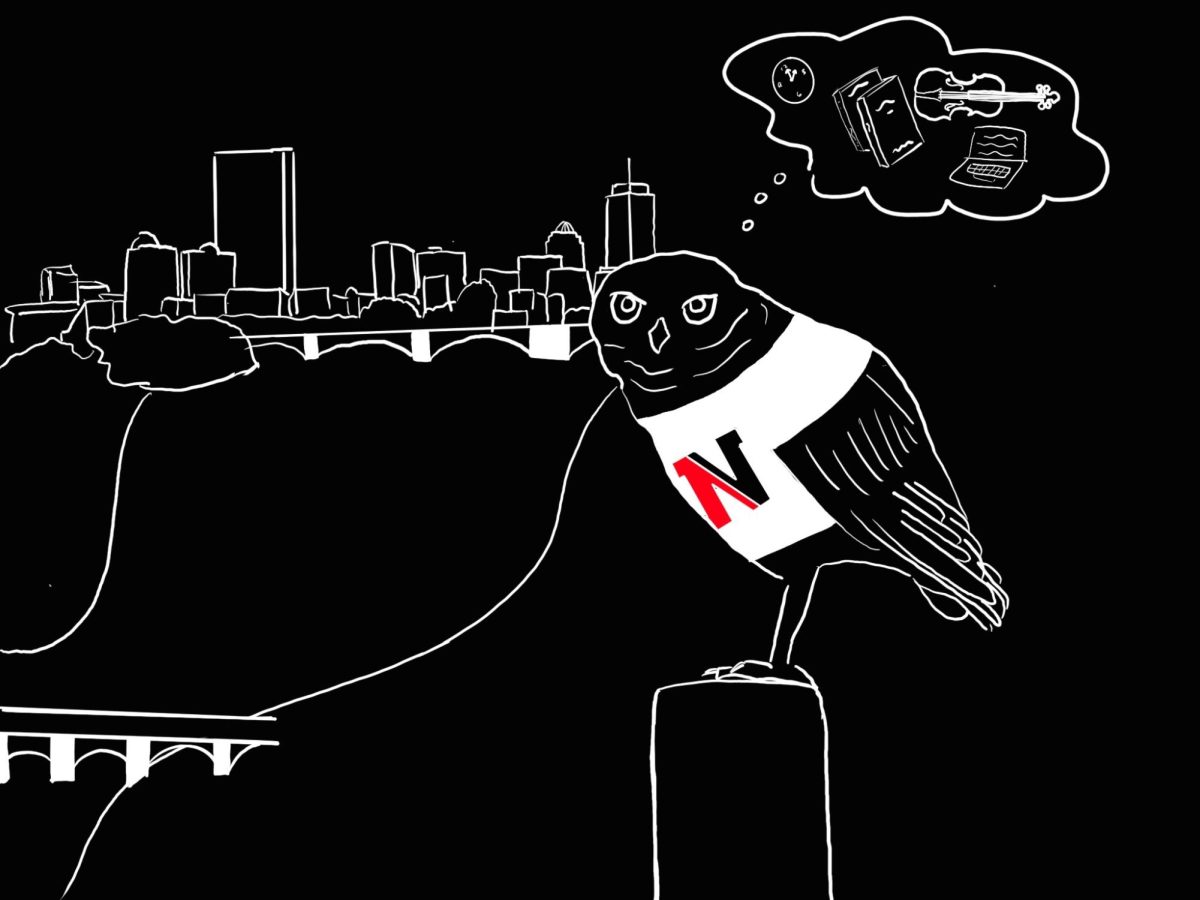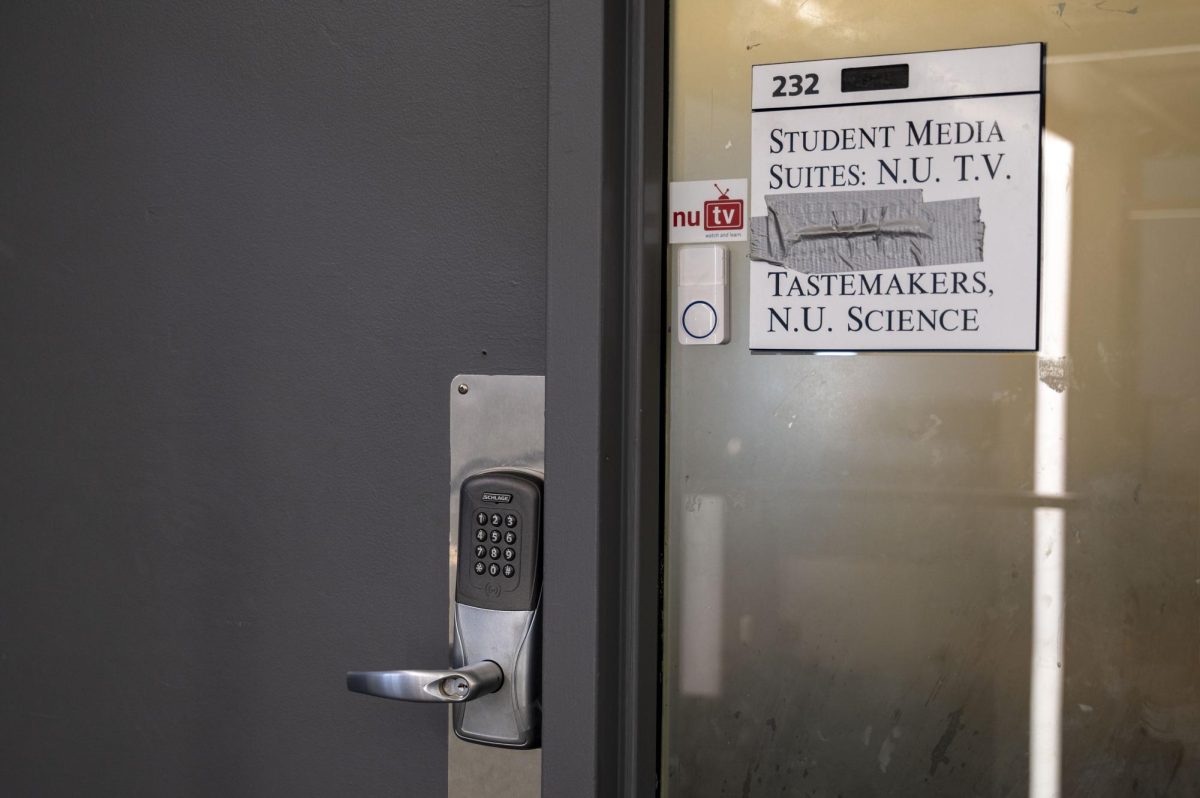Last week, Boston food truck owners said they aren’t getting the business they originally projected. This is surprising, and to those who appreciate good, cheap food, it’s upsetting for a number of reasons. The first being the fundamental paradox of a truck roaming the city, doling out grilled cheese sandwiches that turn heads, not doing good business.
The second: Food trucks are cheap. The overhead is so much lower on a truck than it is on a leased building. Less money on rent means more money on food means better food. Most offer lunch-sized portions for $5 to $7 – that’s pizza place prices for anything from a barbeque seitan sandwich to a shitakke mushroom rice bowl. Food trucks are a breath of fresh air for the “what’s the cheapest thing I can order” lunch crowd – a category most students fall into.
The model makes so much sense even Northeastern Dining hopped on the bandwagon and made one, but they forgot the “it’s supposed to move around” part, so we ended up with a half-baked Chicken Lou’s competitor propped up a tire’s length higher than it need be. It’s the thought that counts, Hungry Hungry Husky, even though your lunch rush lines have all but disappeared.
Anyway, the third reason: Variety. We now have Roxy’s Grilled Cheese outside Stetson West at least once a week, and used to have a Fillbelly’s Chicken and Waffle truck before they nixed their mobile operation. If we, as consumers, prove Hemenway and Forsyth streets a viable spot, more will come, providing more options for when Boloco gets old.
However, City Hall is something of a roadblock for food truck success, as an open letter from Staff Meal food truck owner Adam Gendreau explains. “The reality is that the city hasn’t implemented a system that will allow food trucks to succeed,” he wrote, going on to say that legislation has kept a solid street food culture from taking root here, citing specifically the designated slots and schedule the trucks must adhere to. If multiple trucks were allowed to park in the more popular locations, like Back Bay, they’d be able to generate more long-term customers, the letter posits.
Legislation may indeed be the problem when Boston’s food truck industry is compared with other cities’. According to a Washington Post food blog, the food truck industry staged a coup on the D.C. business district’s lunch routine in 2011, with 35 trucks popping up in the past year. It’s worth noting street vendor legislation there is nearly 30 years old and nothing like Boston’s food truck zoning (though something like that is being drafted). D.C.’s success taken with the renown food truck economies in Portland and New York show successful business models when not over encumbered by legislation.
The city is currently reviewing its food truck plan – a plan that currently allows for 20 food truck “sites” and licenses for 15 businesses. If the city has its students in mind, wishes to stay current, or doesn’t want to come off as the food snob city that forces you to sit down at lunch, it should consider more flexibility.
For now, let’s make what we can of a limited system and eat some creative food for cheap when it comes our way, however infrequently that may happen.













